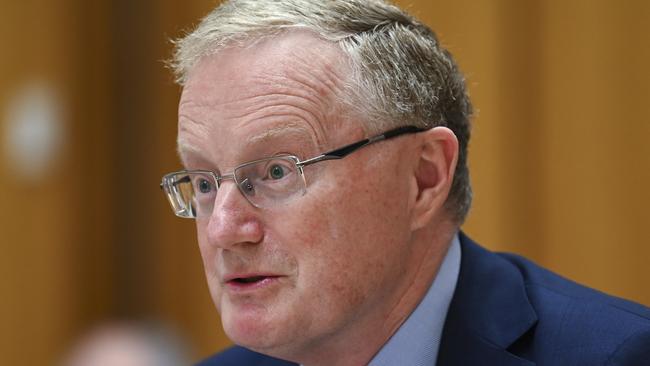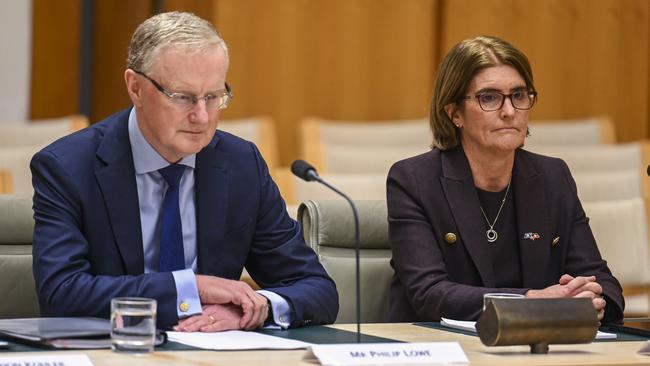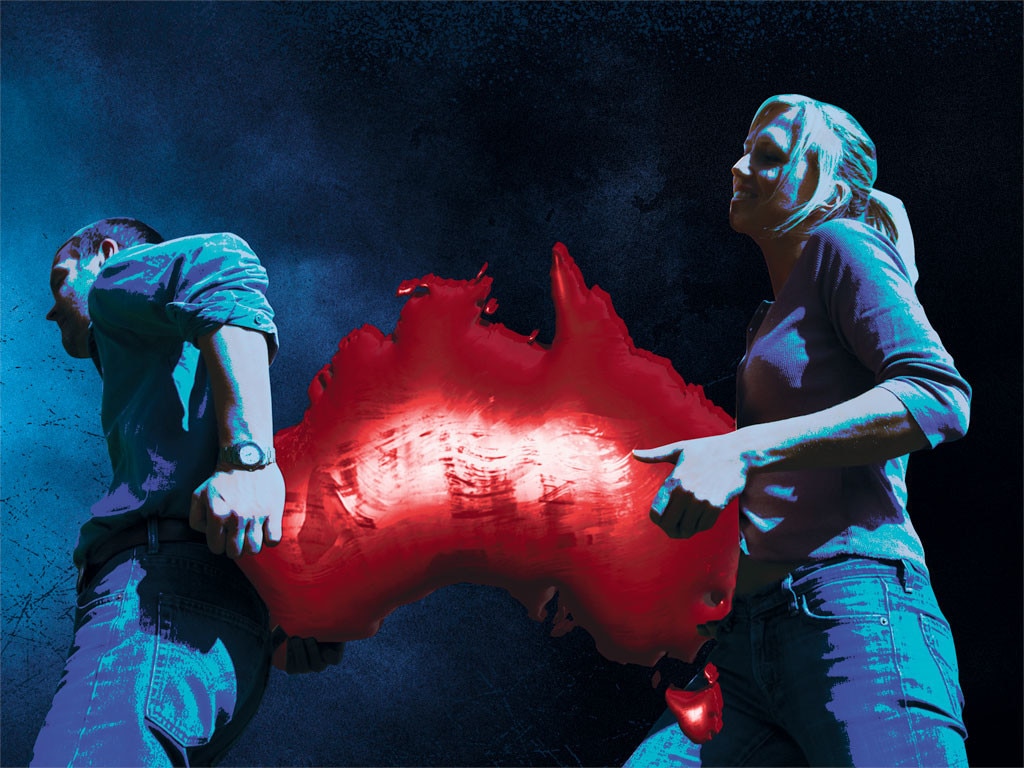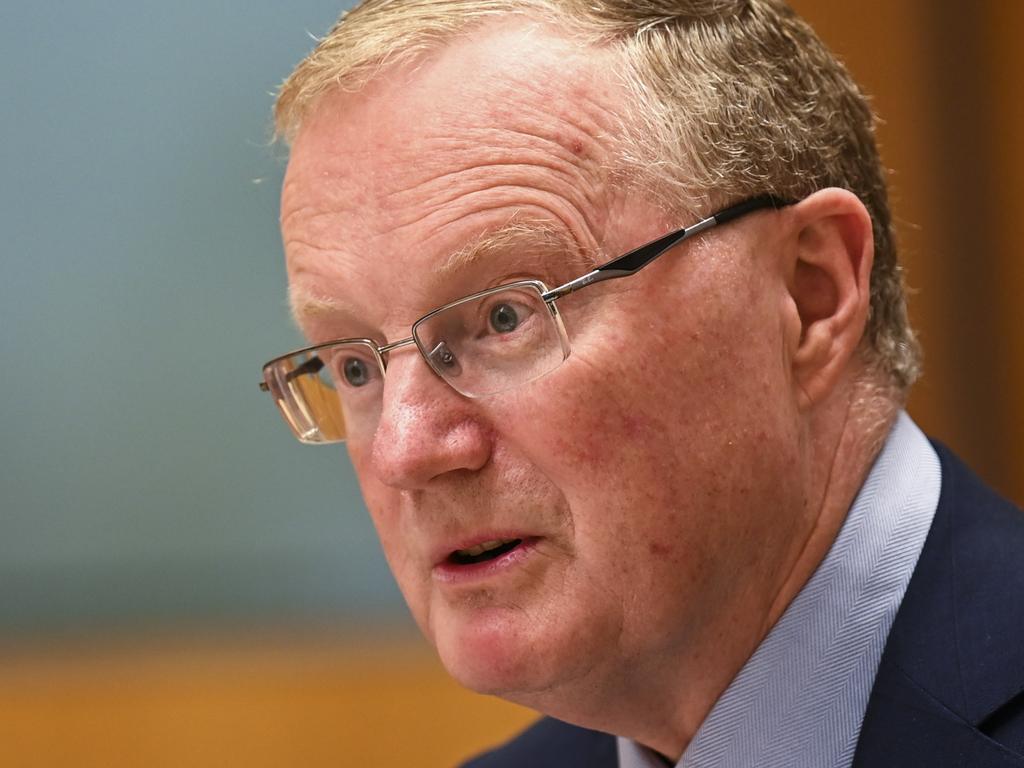Labor and Greens quick fixes will make housing problems worse says RBA’s Lowe
Philip Lowe says the population surge and motivated home borrowers sensing a peak in interest rates are pushing up housing prices.

Reserve Bank governor Philip Lowe said strong population growth and home buyers’ expectations that borrowing rates had peaked were fuelling the resurgence in national housing prices in an economy where inflation was still at large.
In his valedictory testimony to parliament, the outgoing central bank chief urged governments at all levels to reform land zoning to boost housing supply, and to resist short-term policy interventions such as first-home grants and rent controls that “make the problem worse”.
“The solution has to be putting in place a structure that makes the supply side of the housing market more flexible,” Dr Lowe told the House of Representatives Economics Committee on Friday.
“And that means zoning and planning deregulation, and it means … state and local governments being part of the solution.”
National home values rose in each of the five months to July, but are still below their peaks of April last year, just before the RBA began increasing interest rates.
On Wednesday, Anthony Albanese is convening a national cabinet meeting to discuss housing affordability, supply and the rights of renters, as Labor premiers and the Greens push for stricter controls on landlords.

Dr Lowe, whose seven-year term ends in five weeks, said the nation was still on the “narrow path” for a return of inflation, currently at an annual headline of 6 per cent, to the RBA’s mandated 2–3 per cent by late 2025 without a job-destroying recession.
“The RBA’s main focus over the past year or so has been to get on top of the highest inflation rate in more than 30 years,” he said of the dozen hikes to date in the cash rate target, from 0.1 to 4.1 per cent.
“We have made progress here and things are moving in the right direction, but it is too early to declare victory.”
The RBA governor said robust annual population growth was running ahead of a housing supply increase of 1.5 per cent and driving the rebound in house prices.
He said the trend was in combination with an “understandable perception” that the cash rate had peaked, or soon would, and “so now’s the time to get in”.
Dr Lowe also stepped up his call to the political class to pursue policies to improve the nation’s supply side – through tax reform, education, digital technologies and better regulation – and raise productivity growth.
“The RBA’s forecasts have been prepared on the basis that growth in productivity picks up to be close to the rate in the years before the pandemic, which would contribute to a moderation in growth in unit labour costs and thus inflation,” he said.
“If this pick-up in productivity does not occur, all else constant, high inflation is likely to persist, which would be problematic.”
Dr Lowe described productivity as “the No. 1 medium-term economic issue” and said it needed to be at the centre of the economic debate. He said political consensus was required to break the policy inertia. If not, the nation would experience slower economic growth, weaker gains in real asset values and real wages, and a “smaller pie” to sustain the government services Australians value.
The central bank has kept official interest rates on hold at its past two monthly board meetings, with its policy rate now around 1 percentage point or more below many of its peers, including the powerful US Federal Reserve.
Dr Lowe said the high proportion of variable-rate home loans in this country – with one million borrowers already transitioning from ultra-low fixed mortgages, and another million rolling over loans in the next 18 months – meant the RBA’s moves had a more profound effect on household spending.
While acknowledging that borrowers had experienced a “painful squeeze”, he noted savers had realised higher returns.
In any case, the RBA governor said high inflation was corrosive, and reduced the spending power of the entire community, especially the poor, and it “increases income inequality and eats away at people’s hard-earned savings”.
“If high inflation does become ingrained in people’s expectations, history teaches us that the end result is even higher interest rates and even greater unemployment,” Dr Lowe said.
“It is for these reasons that the Reserve Bank Board remains resolute in its determination to return inflation to the 2–3 per cent target range within a reasonable time frame and will do what is necessary to achieve that outcome.”
The RBA chief also pushed back against claims of price gouging by banks, arguing the return on their capital was in line with the 15-16 per cent being recorded by other ASX-listed companies.








To join the conversation, please log in. Don't have an account? Register
Join the conversation, you are commenting as Logout